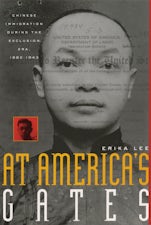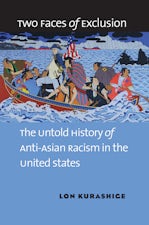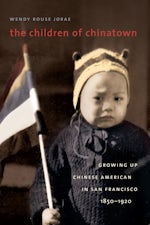Opening the Gates to Asia
A Transpacific History of How America Repealed Asian Exclusion
By Jane H. Hong
280 pp., 6.125 x 9.25, 9 halftones, 4 tables
-
Paperback ISBN: 978-1-4696-5336-5
Published: November 2019 -
Hardcover ISBN: 978-1-4696-5335-8
Published: November 2019 -
E-book EPUB ISBN: 978-1-4696-5337-2
Published: October 2019 -
E-book PDF ISBN: 979-8-8908-5592-3
Published: October 2019
Buy this Book
- Paperback $35.00
- Hardcover $99.00
- E-Book $25.99
For Professors:
Free E-Exam Copies
The mid-twentieth century repeal of Asian exclusion, Hong shows, was part of the price of America’s postwar empire in Asia. The demands of U.S. empire-building during an era of decolonization created new opportunities for advocates from both the U.S. and Asia to lobby U.S. Congress for repeal. Drawing from sources in the United States, India, and the Philippines, Opening the Gates to Asia charts a movement more than twenty years in the making. Positioning repeal at the intersection of U.S. civil rights struggles and Asian decolonization, Hong raises thorny questions about the meanings of nation, independence, and citizenship on the global stage.
About the Author
Jane H. Hong is associate professor of history at Occidental College.
For more information about Jane H. Hong, visit
the
Author
Page.
Reviews
“Hong . . . advances the history of the repeal of Asian exclusion in the US beyond its longstanding pre–WW II focus on China and Japan. She instead concentrates on the years between the war and the landmark 1965 Immigration and Nationality Act. In that period she finds complex interaction between domestic and international developments that affected the status of immigrants from India and the Philippines, as well as those from China and Japan. . . . As the author mines public and private research sources across the Pacific, she keenly elucidates these questions and hints that this is merely part of a much larger analysis of post–WW II immigration.”—CHOICE
"By exploring the nuances and negotiations that took place among Asian Americans, Asian nationalists, and white elites in Washington, Hong provides both a forthright critique of the limits of American racial liberalism as well as a far richer understanding of repeal."—Pacific Historical Review
"I have studied American immigration and racial history extensively, yet Hong’s book revealed a plethora of new information to me. Hong’s efforts to expand the history of Asian exclusion and its repeal have resulted in a significant work. It is a must read for any scholar interested in American immigration history."—Southern California Quarterly
"Masterfully chronicles how, over the course of less than a century, a transpacific movement transformed the United States from a country that barred Asians from immigration and citizenship to the nation that receives more immigrants from Asia than anywhere else in the world." —California HIstory
"Jane Hong offers an impressive examination of the multiple forces that shaped America’s repeal of Asian exclusion, and adds depth and nuance to U.S. immigration history, braiding it with the history of U.S. diplomacy and civil rights. By investigating the dismantling of the Asian exclusion regime, Hong refines understandings about the United States’s growing internationalism and underscores its transpacific shift during the early twentieth century." —Cindy I-Fen Cheng, University of Wisconsin-Madison
"This book contains compelling analysis, astute observations, and a number of new and important sources. Hong makes intriguing and complex arguments while tracing the complicated transpacific struggle for repealing exclusion." —Charlotte Brooks, Baruch College




